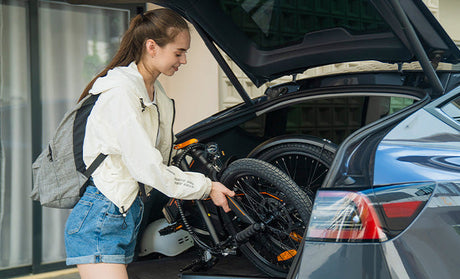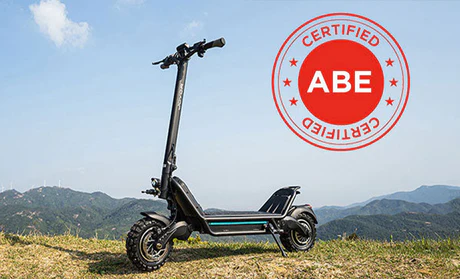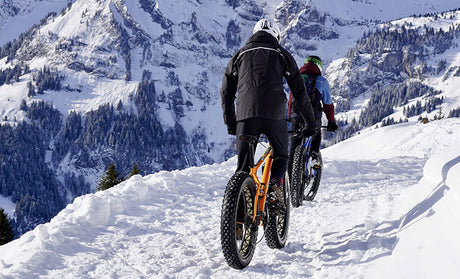Among today's eco-friendly transportation options, electric bikes have become a popular choice for commuters and enthusiasts. Whether you're navigating city streets or exploring rugged terrain, finding the perfect electric bike can greatly enhance your riding experience. This guide will walk you through everything you need to know to make an informed decision.
Contents
-
1. What is an Electric Bike?
a. Pros and Cons of Electric Bikes and Regular Bikes
b. Differences Between Electric Bikes and Regular Bikes - 2. Riding Terrain and Conditions
- 3. Price
- 4. Choosing the Right Size and Fit
-
5. Battery and Motor Specifications
a. Motor Type and Characteristics - 6. Features and Accessories
- 7. Testing and Comparing e-Bikes
- 8. Brand and Reputation
- Conclusion
What is an Electric Bike?
Electric bikes, or e-bikes, integrate an electric motor to assist pedaling, providing varying degrees of assistance depending on the model. They come in different types, suited to different uses, including commuter e-bikes designed for urban travel, mountain e-bikes for off-road adventures, and folding e-bikes for easy portability.

Pros and Cons of Electric Bikes and Regular Bikes
| Type | Advantages | Disadvantages |
|---|---|---|
| Electric Bikes (E-Bikes) |
Assisted Riding: Electric motor provides pedaling assistance. Speed: Can achieve higher speeds with less effort. Ease of Use: Suitable for all fitness levels. Versatility: Can handle varying terrains easier. Environmental Impact: Lower carbon footprint if charged from renewable sources. |
Cost: Higher initial purchase cost. Maintenance: Battery and motor maintenance required. Weight: Heavier due to battery and motor. Range Anxiety: Limited range per charge. Legality: Regulations may restrict use in some areas. |
| Regular Bikes |
Exercise: Provides physical exercise. Affordability: Lower initial cost. Simplicity: No motor or battery maintenance. Tradition: Familiarity for many riders. Regulation: Often allowed where e-bikes may face restrictions. |
Physical Effort: Requires more effort for speed and inclines. Speed Limitation: Slower speeds without assistance. Terrain Limitation: Harder to navigate hills and rough terrain. Environmental Impact: Higher carbon footprint from increased physical exertion. |
Differences Between Electric Bikes and Regular Bikes
| Aspect | Electric Bikes (E-Bikes) | Regular Bikes |
|---|---|---|
| Power Source | Electric motor powered by rechargeable battery. | Human-powered by pedaling. |
| Speed | Can reach higher speeds (typically up to 25 km/h or more). | Relies solely on rider's physical effort. |
| Usage | Suitable for commuting, leisure, and fitness. | Mainly used for recreation, fitness, and sports. |
| Technology | Includes features like pedal-assist and throttle modes. | Basic mechanics with no electronic components. |
| Legal Considerations | Regulations vary globally regarding usage on roads and bike lanes. | Generally allowed on roads and bike lanes worldwide. |
Riding Terrain and Conditions
Electric bikes are designed for different riding terrains. Start by assessing your typical riding terrain and conditions to determine the necessary e-bike features. For example, you often commute in the city, go on short trips frequently, or often go off-road. Different riding environments correspond to different riding needs. Also, consider the distance you plan to ride on a single charge, called battery range, which varies based on battery capacity and motor efficiency.
Price
When choosing an e-bike, in addition to considering your riding terrain and conditions, you also need to consider your budget, because e-bike prices vary greatly. For example, entry-level e-bikes are below 1500 euros, mid-range e-bikes are between 1500-1800 euros, and e-bikes over 1800 euros are generally high-end e-bikes. Of course, some people think that mid-range e-bikes are between 1500-3000 euros, and those over 3000 euros are high-end e-bikes. There is no specific range for this, but for daily life, entry-level e-bikes already meet most needs, whether it is commuting or short trips.
Related article recommendation: How Much is an Electric Bike?
Choosing the Right Size and Fit
Making sure the e-bike fits your body and riding style is critical for comfort and safety. E-bikes come in a variety of frame sizes, and adjustable components like handlebars and seats can further customize the fit. A properly fitted e-bike can reduce stress and increase control while riding.
Battery and Motor Specifications
The heart of an e-bike is its battery and motor. Batteries come in different capacities and types (such as lithium-ion), which affect range and weight. Meanwhile, motors have different power outputs and locations, which affect how the e-bike assists you in pedaling. Understanding these specs can help you match a e-bike's performance to your riding needs.

Motor Type and Characteristics
| Motor Type | Characteristics | Applications |
|---|---|---|
| Hub Motor | Mounted in the hub of the wheel Direct drive (less maintenance) or geared (more torque) Simple installation |
Commuting, leisure riding, flat terrain |
| Mid-Drive Motor | Mounted at the e-bike's bottom bracket Utilizes e-bike's gears for efficient power distribution Better balance and handling |
Off-road riding, hilly terrain, longer distances |
| Friction Drive Motor | Driven by friction against the tire Lightweight and portable Easy to retrofit |
Folding e-bikes, lightweight electric bikes |
| All-in-One Motor | Integrated with the e-bike frame Often lighter and more aesthetically pleasing Quieter operation |
City commuting, stylish electric bikes |
Features and Accessories
Key features like brakes, gears, and suspension systems have a significant impact on riding comfort and control. Good brakes ensure reliable stopping power, while gears optimize pedaling efficiency on different terrains. Suspension systems, especially on mountain e-bikes, absorb impacts for a smoother ride. Additional accessories like lights and frames enhance practicality and safety.
Testing and Comparing e-Bikes
Before buying, it’s essential to test ride different e-bike models to assess their handling and performance. Pay attention to factors like comfort, handling, and ease of use. Comparing e-bikes side by side will allow you to determine which features and specifications best match your preferences and needs.

Brand and Reputation
Choosing a reputable e-bike brand that’s known for its reliability and customer support can provide peace of mind. Researching customer reviews and expert opinions can provide insight into a brand’s reputation and the actual performance of its e-bikes. Choosing a reputable brand generally ensures better quality and after-sales service.
OOLACTIVE is a shop that sells and produces top-quality electric bikes and scooters. Here you can buy the top electric riding brands on the market, such as engwe, duotts, ridstar, kukirin, ONESPORT, halo knight, etc.
Conclusion
Choosing the right e-bike requires evaluating your riding needs, considering technical specifications, and ensuring a comfortable fit. Whether it’s a daily commute or a weekend adventure, a well-chosen e-bike can improve your mobility while reducing your impact on the environment. By understanding these factors and making an informed decision, you can enjoy the benefits of an e-bike for years to come.










